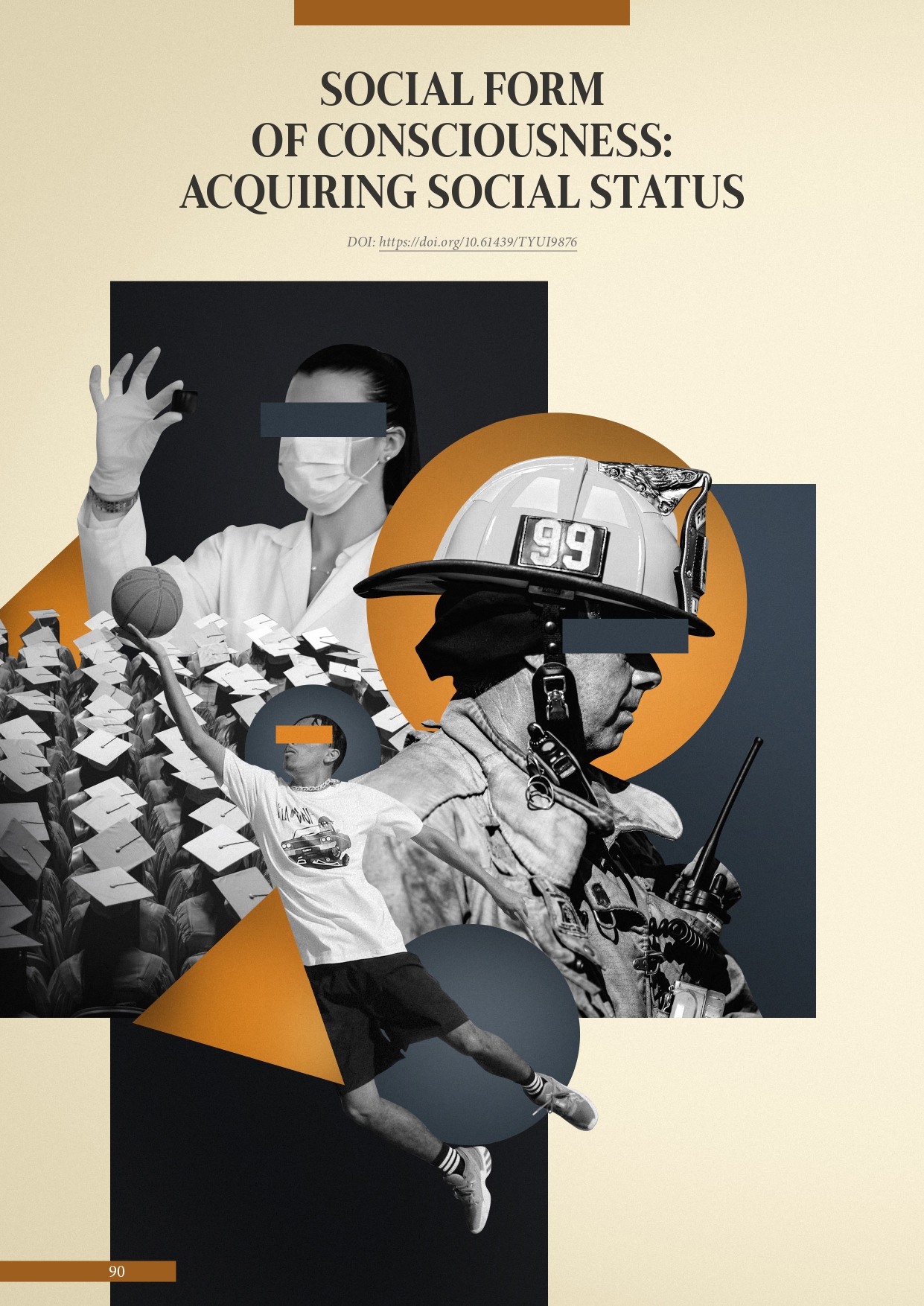Social Form of Consciousness: Acquiring Social Status
##plugins.themes.academic_pro.article.main##
Abstract
Society is commonly referred to as the primary social form, and this is because it is the most widespread and pervasive social institution. The key criterion for understanding is the benefit to society, and so we are dealing with two phenomena: profession and "social output" (or success), which essentially characterises social contribution.
In researching the structure and mechanisms of consciousness, the author concludes that the social form of consciousness is the result. Consciousness itself is a result, or a state of affairs.
The author is interested in the social form of consciousness as a practical foundation of social usefulness and effectiveness, rather than as an object of theorisation. This qual- itative characteristic of social activity is the presence and contribution of an individual to the common cause.
In society, there is a value placed on auxiliary elements that act as transformers in the conversion of reason into consciousness and vice versa. To put it another way, education, social stability and predictability, discipline and reliability are prized. This is especially true of the aspects of social philosophy that define a civilised, non-confrontational, law-abiding and far-sighted person.
Provided everything else is equal, the core value is social stability, which is based on achievements and results.
DOI: https://doi.org/10.61439/TYUI9876

